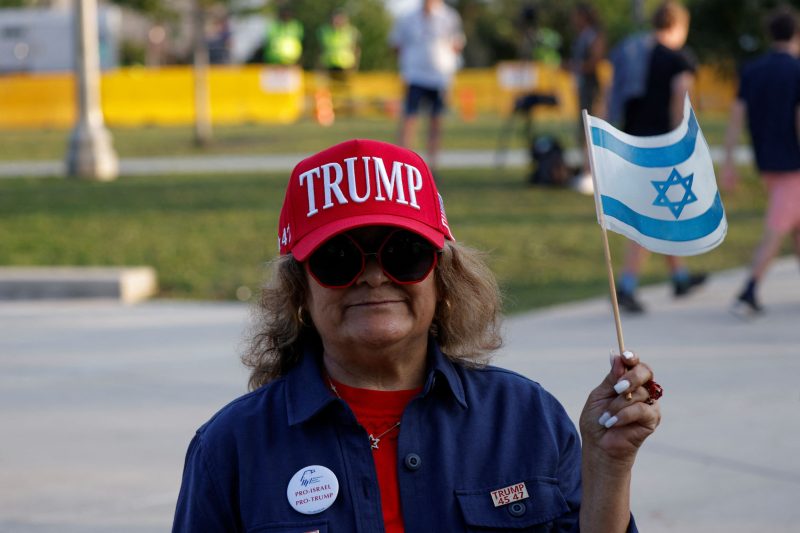
Trump Playing Judge and Jury Over Who Qualifies as a ‘Proper’ Jew
In the recent controversy surrounding President Trump’s remarks on who he deems as a proper Jew, there has been widespread debate and backlash from various quarters. Trump’s comments have sparked outrage and concern regarding the boundaries of religious identity and the role of political leaders in defining these parameters.
At the core of this issue is the question of who has the authority to determine an individual’s religious identity. Religion has long been a deeply personal and individual aspect of people’s lives, and the idea of a political figure asserting influence over this realm is troubling for many. Trump’s statements raise concerns about the separation of church and state, as well as the freedom of individuals to practice their religion without interference or judgment from the government.
Furthermore, Trump’s remarks have deepened existing divisions within the Jewish community. The notion of a proper Jew implies a narrow definition of what it means to be Jewish, excluding those who may not fit into this rigid mold. This exclusionary rhetoric can be damaging, leading to further polarization and alienation within the community.
Another point of contention is the potential impact of Trump’s words on the broader society. As the leader of a diverse nation, his statements carry weight and influence over public discourse. By making sweeping statements about who is considered a proper Jew, Trump risks perpetuating stereotypes and misconceptions about a complex and multifaceted religious group.
Moreover, Trump’s comments have reignited debates about the intersection of religion and politics. While it is not uncommon for politicians to express their religious beliefs, there is a fine line between personal faith and using religion as a tool for political gain. Trump’s assertions about who qualifies as a proper Jew blur this line and have raised concerns about the motives behind such statements.
In conclusion, President Trump’s recent comments on defining a proper Jew have sparked a contentious debate about religious identity, political authority, community unity, and the impact of public statements. It is crucial for leaders to exercise caution and sensitivity when discussing matters of religion, recognizing the diverse and complex nature of individual faiths. As this controversy unfolds, it serves as a reminder of the need for open dialogue, mutual respect, and a conscious effort to bridge divides rather than deepen them.
